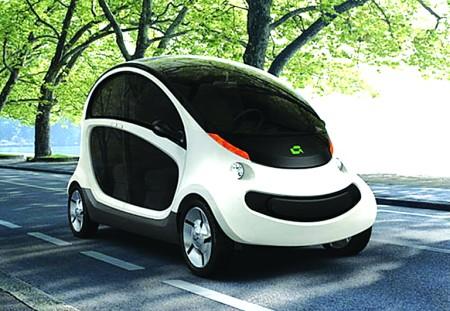Safety Harness,Soft Carabiner,Hunting Safety Harness Winnerlifting Industry & Trading Co., Ltd. , http://www.nbratchet.com Prior to being replaced by petroleum-powered vehicles, electric vehicles had flourished in the first decade of the 20th century. The current situation is that consumers are still not interested in electric cars even though they have recovered after a decline.
Prior to being replaced by petroleum-powered vehicles, electric vehicles had flourished in the first decade of the 20th century. The current situation is that consumers are still not interested in electric cars even though they have recovered after a decline.
Although Nissan Motors recently made a promise of so-called green transportation, it has already invested billions of dollars in this end, but the development of electric vehicles eventually stopped because of many unsolvable problems, like the first decade of the 20th century. What happened in the 1990s. These issues include high costs, short mileage, and a small number of charging stations.
Just last week, because of the lack of enthusiasm for the public for battery-powered cars, the Obama administration had to change the radical target of 1 million electric cars by 2015.
The cold reaction of consumers to electric cars made Nissan’s CEO Carlos Ghosn to adjust their strategy and shift their focus to hybrid vehicles – hybrid cars have now been able to overcome many of the disadvantages of pure electric vehicles. Ghosn, as we all know, had clearly stated that it was very optimistic about electric cars.
This strategic adjustment is generally considered to be Ghosn's default decision. Despite investing billions of dollars in betting on electric vehicles, Nissan's sales of battery-powered vehicles, the Leaf, are still far smaller than those of Ghosn's millions.
Instead, Nissan decided to follow their rival Toyota, the world's largest hybrid car manufacturer, to skip pure electric vehicles and develop the next generation of green technology vehicles. No pollution, no fuel oil, can convert hydrogen into an electric fuel cell car.
Toyota Deputy Chairman Takeshi Uchiyamada, known as the father of the Prius, had helped the hybrid vehicle enter the automotive industry. He believes that the future of fuel cell vehicles is far more wonderful than electric vehicles.
"Constrained by its shortcomings - short distances to travel, high manufacturing costs and long recharging time - it is not realistic to expect electric vehicles to replace conventional cars on the market," Uchiyamada said. "We need some fresh attempts."
Toyota step ahead In this competition, whoever leads the next industry revolution is the big winner in the auto industry.
For example, Nissan and Renault have pledged to invest US$5 billion in R&D and production of electric vehicles and batteries; Toyota, however, has taken another road: spent more than US$10 billion in research and development of hybrid vehicles in the past 16 years, and Established and nurtured an ever-expanding market. One of the best-selling models Prius has now achieved profitability.
Although both Nissan and Toyota are reluctant to abandon electric vehicles altogether, in view of their recent strategic adjustments, both companies may skip this phase of electric vehicles and focus on meeting future transportation needs.
Both companies' research on green cars began in the mid-1990s when Toyota introduced the first-generation Prius and Nissan introduced the Altra in 1997.
Toyota introduced the Prius to the United States in 2000, but Nissan spent 10 years researching and developing small-displacement Altra and other electric car models, such as the HyperMINI. Until 2010, the Nissan listed on the Leaf was considered to have entered the US market.
Uchiyamada is responsible for overseeing the continuous improvement of the Prius, which has led Toyota to lead the green car derby for the past 10 years. But Toyota also invested heavily. According to former Toyota executives, during the R&D of the first two generations of the Prius, Toyota subsidized billions of dollars for R&D and manufacturing.
Six years after its listing, Toyota's hybrid vehicles finally got hot in the US market. The latest sales figures show that the difference between the two companies' original ideas was a big difference today.
In the past year, Toyota expanded its hybrid model to 12, including four different models of the third-generation Prius. In 2012, Toyota sold a total of 327,413 hybrid vehicles in the United States and 1.2 million vehicles worldwide. The global ownership is close to 5 million vehicles.
Among all the hybrid vehicles, the Prius accounted for more than half of the share, becoming the most successful "green car" in history, and the few exceptions to the so-called green car that the public sniffed.
Compared with the Prius, the Leaf can only be considered so-so.
Nissan introduced the Leaf two years ago, and has sold less than 50,000 vehicles worldwide so far, and in January it drastically reduced its minimum price to US$29,650. According to TrueCar's survey, even some Nissan dealers have reduced Leaf's monthly rent from 1999 to US$199.
"When a new technology is just beginning to be industrialized, sales are usually lower than expected," said Mitsuhiko Yamashita, executive vice president and head of R&D at Nissan, "but with the continuous development of electric vehicle technology and the declining prices, sales May burst."